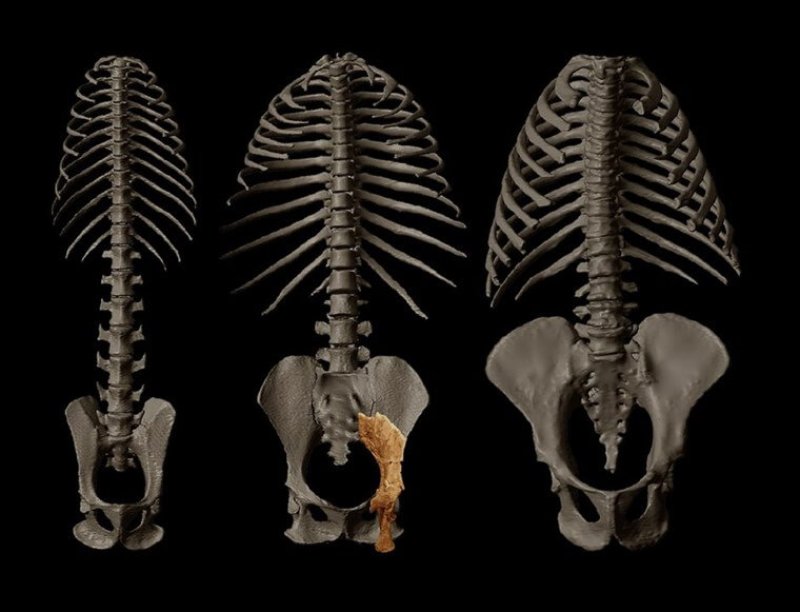Scientists have long thought that humans evolved from an ape that moved about on all fours like a chimpanzee, and they’ve puzzled over how and when our distant ancestors came to walk on two feet.
A fossilized pelvis of Rudapithecus, a long-extinct relative of humans and modern apes, may hold the answer. New research on the fragmentary remains suggests that when the beagle-sized ape descended from the trees, she didn’t knuckle-walk like chimps or gorillas, as previously thought. Rather, she stood upright on two legs — much like a human.
“We’ve always asked, ‘Why did our lineage evolve? Why did we stand up from all fours?’ But Rudapithecus begs the question: ’Why did we never drop down on all fours in the first place?’” said Carol Ward, a professor of anatomy at the University of Missouri School of Medicine in Columbia, and lead author of a paper about the research published Sept. 17 in the Journal of Human Evolution.
“It causes us to approach the fossil record and our understanding of our origins in a fundamentally different way than we ever have before,” she added. “It’s a game-changer. The textbooks now get to be rewritten.”
Read full, original post: Ancient ape fossil yields surprising new insights about human evolution































